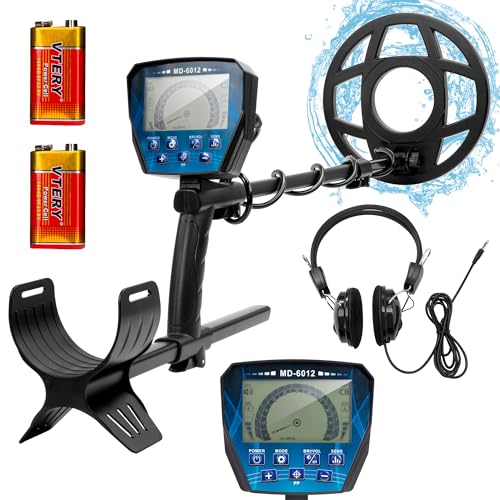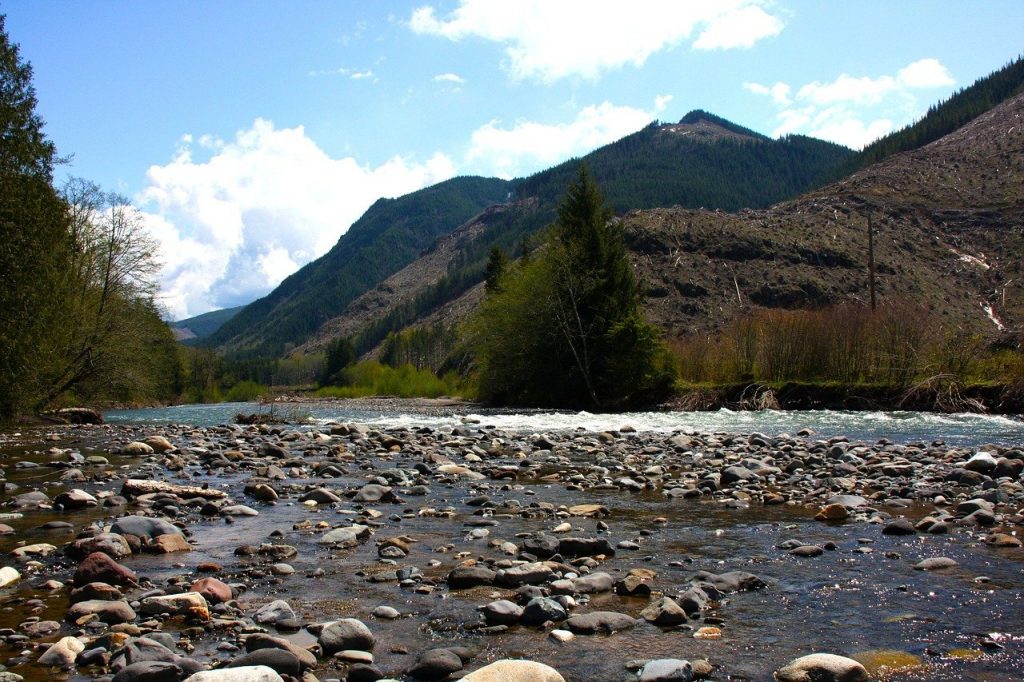
If you’re a metal-detecting enthusiast, you’ve likely already entertained the thought of bringing your metal detector to a river, creek, or stream. After all, what could be more exciting than anticipating what could possibly be underneath a bed of water? Mainly because water is constantly moving and you never know what you will find underneath it!
Regardless of the type of metal detector you own, you can easily find all types of treasures in a body of water such as a lake or river, but just like detecting anywhere else, there are tips you can follow to increase the likelihood that you’ll be successful in your endeavor.
Not to worry, though, because these are simple and practical tips that just make sense, and they can have you even more excited about going out to the river to see what you can find.
River Metal Detecting. First Thing’s First
The first thing you should know is that you’re likely going to find items that are completely different than the items you find in the dirt. When people swim, jewelry gets loose and sometimes falls off, so you may find rings, bracelets, and other pieces when you go river metal detecting.
You usually don’t find too many coins like you do in the dirt, but you are very likely to find jewelry, fishing gear, knives, and many other items that people tend to use when they’re boating, fishing, or swimming.
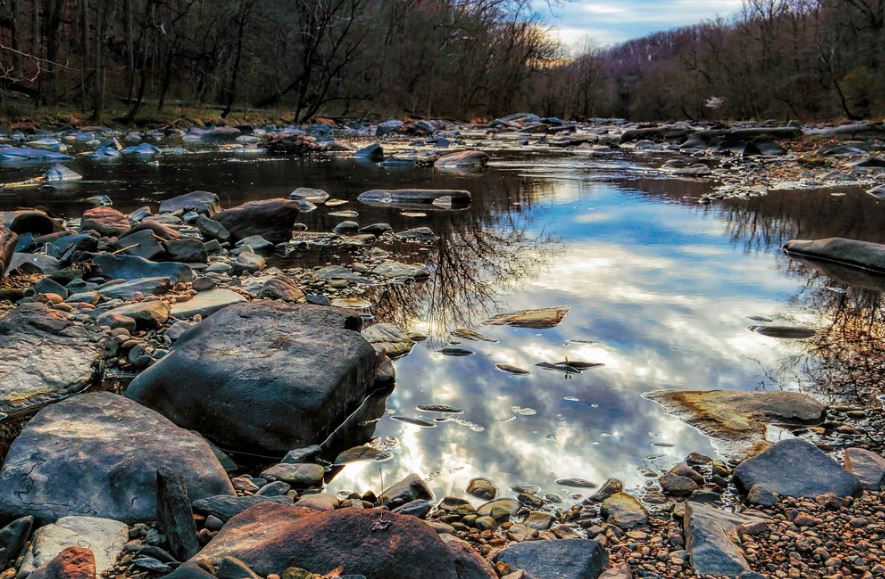
In other words, detecting in water and on river banks is entirely different than detecting anywhere else, making this a great activity for metal-detecting hobbyists who would like to explore something new the next time they decide to use their detector.
Getting started is super-easy because all you do is find a spot where there are a lot of boats, kayaks, and rafts, not to mention a good sandy beach area.
You are going to be near water, so you’ll need to consider safety a top priority. When you’re detecting in or near water, keep the following tips in mind:
- Keep in mind that water moves fast, so if you’re in the water detecting, never let your guard down. Even if you are a good swimmer, you can easily get swept away in the currents if you’re not paying attention every minute while you’re out there. In other words, be careful!
- Remember that rivers may not always be stable underneath. River beds can be uneven and they sometimes take a sudden drop, so while you’re walking around in the water, you need to pay attention so that you don’t end up falling face first and get wet.
- You might run into some “yucky” stuff. This is a river, after all, so you may run into trash, heavy metals such as lead and mercury, and even sewage. It won’t necessarily be pleasant at times, but think of it this way – your metal detector will probably love it!
- Remember that detecting in rivers means you’ll likely have to dig underwater to get the items setting off the detector. If you’re in a public area, you might be limited in the tools you can bring along to dig with, so digging may be challenging. You also might dig up items you don’t want to be around, such as nails or rusty hardware.
But don’t let any of this discourage you. Bringing your metal detector to a river or stream can produce a lot of great results, especially if you learn which places you’re most likely to find something and which areas to avoid. In addition to those mentioned above, it is better if you heed a few other important safety tips, such as:
- Always wear your life jacket “just in case.”
- If the water is cold, don’t forget to wear thick socks and waterproof boots.
- If the water is rough, don’t go any deeper than ankle-deep.
- Try to go out to the water with a friend if you can.
Indeed, you cannot be too safe when you’re on the water, so if you err on the side of caution, you should be just fine.
River Metal Detecting. The Best Places to Be
Having a plan before you go out detecting in a river is smart. After all, this is an unpredictable hobby in many ways and if you’re out there in the water, you’ll want your time to be spent wisely. It’s usually not good just to rush out there and start detecting. In fact, below are some tips to follow if you want to increase your odds of finding some very cool relics in the water.
- Always bring the right tools and the right gear with you when you detect.
- Always search underneath overpasses and bridges.
- Do your due diligence to make sure you don’t have to have permission to go detecting there.
- Look for beach areas that are popular and frequently crowded.
- The sand and water below lovers’ leaps and vista points are usually good places to detect.
It also helps if you do a little research on the river itself, which isn’t difficult to do. If you do this, you will likely discover what types of metals are usually found in that body of water, which means it’ll be easier for you to look for specific items once you get out on the water.
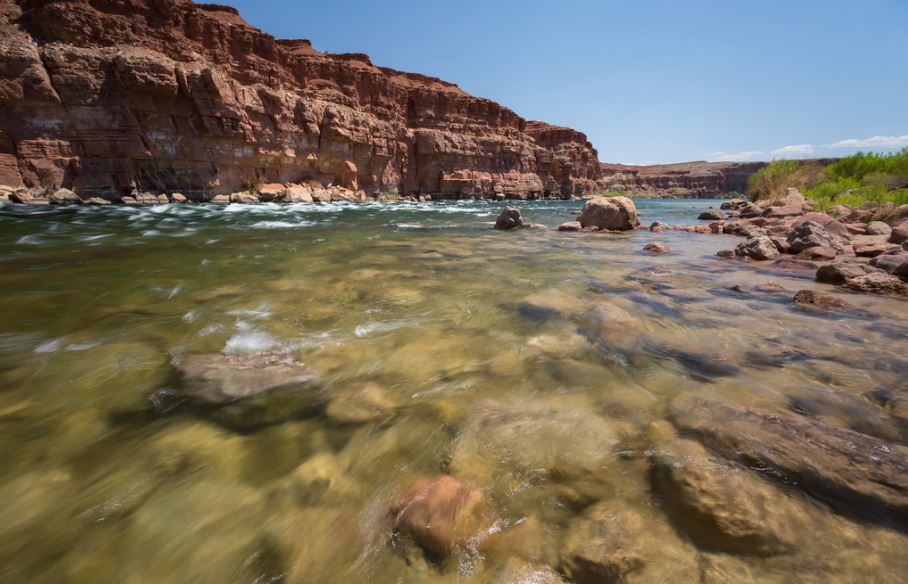
In addition, although you don’t necessarily need a waterproof metal detector, you should at least purchase a waterproof pinpointer. If you’re wanting to find gold, buy a metal detector specifically made for this purpose. Check out our article HERE. You have to have the right metal detector, above all else, because this is the best way to increase the odds of finding something exciting.
Plan ahead, in other words, so you are as prepared as possible for that particular river.
Most importantly, don’t give up on your quest. If you go out there the first time and don’t find anything worthwhile, this doesn’t mean you shouldn’t go back. You may have to go out to that body of water several times to find something you’ll want to keep, so never give up on what you’re trying to accomplish.
After all, just like the water’s currents will move around, so will the relics found underneath that water, which means even if you bring your metal detector to the same place every time, you’ll likely find completely different items each and every time you’re there.
What to Bring with You to the River when Detecting
You’ll definitely want to bring the right clothes with you before you go river metal detecting, including a windbreaker, an extra pair of dry socks, and maybe some bug spray. The right tools are also important, starting with a long-handled sand scoop. Although the water may be only knee-deep at that point, the long handle will make digging for treasures a lot easier on you.
If you’re planning to search for either silver or gold, you’ll also want to bring along a prospector’s hammer. A spade shovel that is relatively small is particularly helpful if the river bottom is rocky, and all of these items will ensure that you’ll have just what you need for when your detector goes off and you’re ready to find out why it’s doing so.
If you’re new to metal detecting, you might want to check with an expert to make sure you haven’t forgotten anything important, but these items will provide you with everything you need at least most of the time. Forums are a great place to get this sort of information. Check out the best the internet has to offer HERE.
Planning for metal detecting at a body of water does take some preparation ahead of time, but the good news is that most of the things you’ll need to bring with you are just common sense.
You may also need fishermen’s waders or even a wet suit for your time on the water, depending on the depth and temperature of the water. This is yet another reason why doing some research on that particular river is so important. You don’t want to get out there and be unable to do what you wish to do just because you don’t have the right tools, gear, or clothing. This can be avoided, though, if you prepare ahead of time.
Do You Always Have to Be on Foot?
Oddly enough, you do not always have to go out in the water on foot. Although being in the water on foot leaves you a little more freedom to move around easier and faster, you can also use your metal detector when you:
- Sit in a kayak, rowboat, or canoe and place the metal detector off one side of the boat. This is the perfect solution for those times when you’re near a sandbar or another hard-to-reach place.
- Try magnet fishing. You won’t use a metal detector but a heavy magnet instead, tied to a rope and dipped into the water. Be careful, though, because you can easily lose the magnet if you run into underwater rocks or trees.
Magnet fishing is also perfect when you’re “fishing” off a pier or even a bridge. Be sure and conduct an online search on magnet fishing so that you can get some ideas regarding the type of magnet to use and the exact method of tying the rope around the magnet.
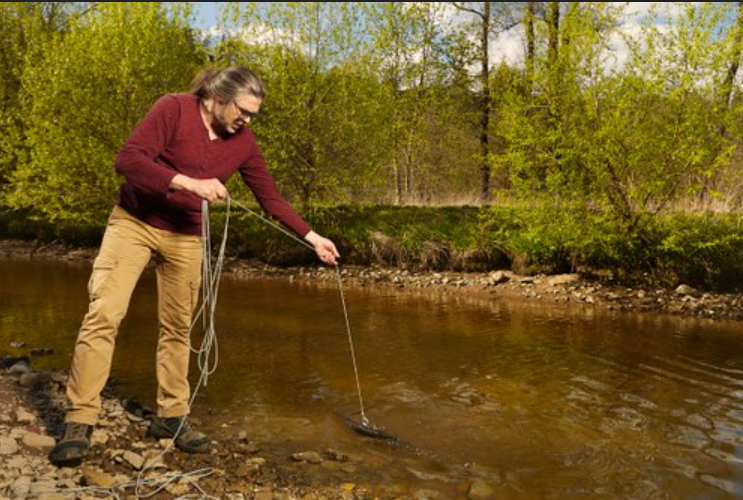
Most importantly, don’t spend a ton of money on the equipment for this sport because the more you go out there, the more likely you’ll eventually lose the magnet anyway. Still, magnet fishing can be a lot of fun and should be tried at least occasionally.
When and Where to River Detect
Believe it or not, a lot of your river detecting success will depend not only on which river you’re using, but also on when you go out on that river. As a general rule, below are some of the best times to get into the water of a river or stream:
- Right after a large storm or there is a surge in the river flow.
- When there is a dry spell going on since this will expose more of the river bed.
- When water is cut off due to certain activities, such as emergencies and construction work.
If you’re wondering what type of river to look for – after all, there is likely more than one river in the area where you live – you should always search for one that is frequented by people on a regular basis. After all, more people equals more potential finds for you, and you can’t ignore that. If there are popular swimming holes or beach areas, that’s where you want to be because this is where the most “stuff” will be found.
You can also check the end of a sandbank, close to canyons or narrow passageways, wherever bedrock is exposed under the water, and any sudden drop-off areas near dunes. The latter is usually successful because this is usually the area where turbulent water will often release the items it has found in other areas of the river. Sharp turns in the river are also popular areas that make it easier to find great relics and treasures.
Buying Waterproof Equipment
It was mentioned earlier that you do not need a waterproof metal detector, but that doesn’t mean it isn’t a good idea. Add that to the fact that you should always have a waterproof pinpointer and you’ll understand why knowing what the word “waterproof” means is so important.
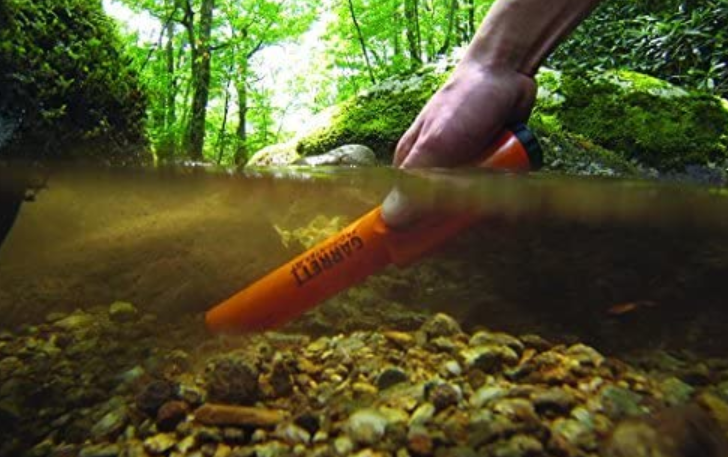
In general, waterproof items are all given ratings, and each of the ratings means something important. Usually, the instructions on the packaging will tell you how deep in the water the device can go without becoming unusable, and for how long it can do this. If it only gives you an “IP” number, you can look up that number online so that you know exactly how to use your metal detector in or near water.
While many metal detectors are not waterproof, many others are waterproof up to 10 feet below the water, which should suffice for most of your outings.
Some metal detectors have coils that cannot be submerged underwater, and of course, if you have a detector with electronic parts, those parts should never be submerged in water.
Basically, metal detectors range from those that should never be allowed near water to those that are completely submersible and therefore safe for all of your outings in or near the water. If you know you’re going to be stream or river metal detecting soon, you’ll need to make sure you get a waterproof detector.
Again, read the directions on the packaging so that you’ll know for sure. This way, you won’t ruin an expensive metal detector and you will have fun with the detector you’ve chosen for many years to come.
Additional Tips for Success
In addition to all of the information mentioned so far, there are other tips you can use when you’re interested in metal detecting in or near a body of water. These include the following:
- Always test out your metal detector at home before bringing it on an outing. The last thing you want is to find out that your detector doesn’t work right or worse, that it’s broken. If you discover this while you’re out on the water, it’s simply too late to do anything about it.
- Bring extra batteries with you. Metal detectors run on batteries and as such, those batteries may die when you’re out on the water, and this usually happens at the worst possible time. To avoid disappointment, just bring an extra set of batteries so that you can always have a fresh pair on hand if you need it.
- Get familiar with any local and state laws having to do with metal detecting. These laws vary quite a bit from area to area, so you’ll need to familiarize yourself with them before you head out. This can help you avoid a lot of confusion and disappointment later on when you’re in or near the water.
- If you have a choice between wide-scan and concentric coils for your metal detector, choose concentric coils. Although wide-scan coils can get into smaller areas, concentric coils are able to search much deeper once you put it in the water, not to mention find bigger treasures once it’s down there.
- Talk to a local historian. These people know amazing things about the area they’re in and can provide you with a lot of details you never knew existed. They don’t always know about the items that can be found underneath a certain body of water, but they can certainly tell you what likely has happened around that body of water, which means you’ll get better ideas of what to look for when you get there.
Indeed, river detecting is a lot of fun because you never know what you’ll find. The truth is, all rivers and streams offer something different, and the same river won’t produce the same treasures every time you visit it.
Being prepared and doing your research is the smartest thing to do, especially if you’ve never detected near a body of water before. River detecting can produce some of the most amazing artifacts of any detecting that you do, so it is always well worth your time.









